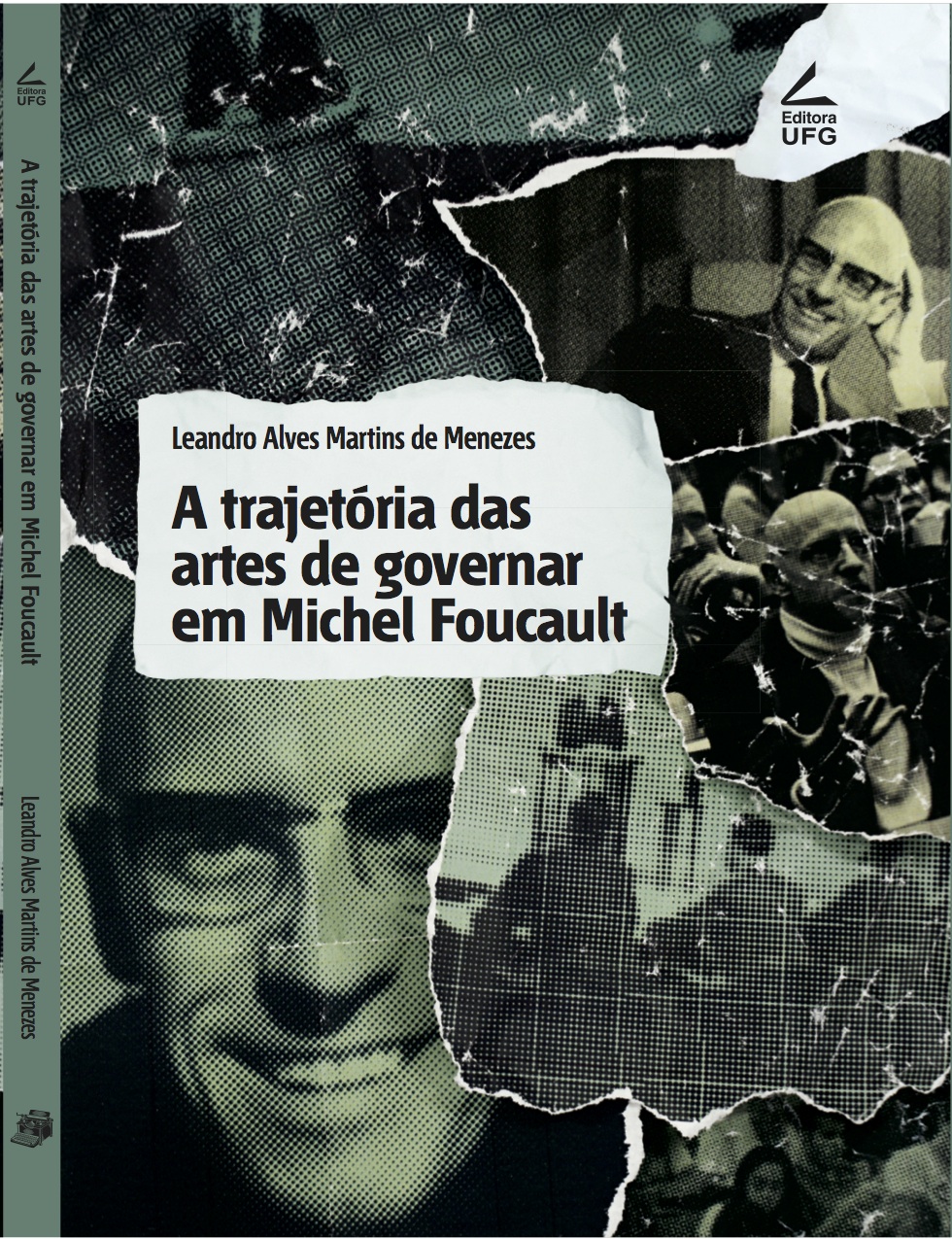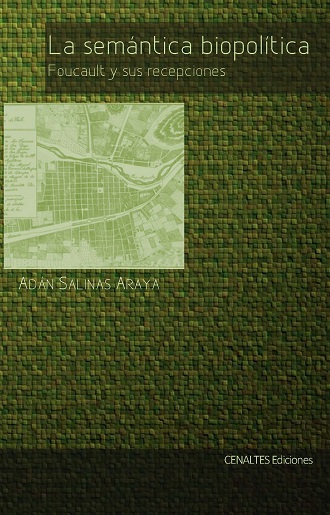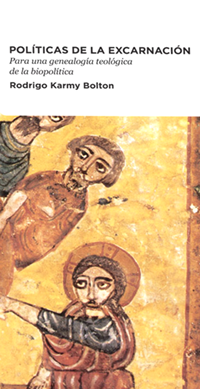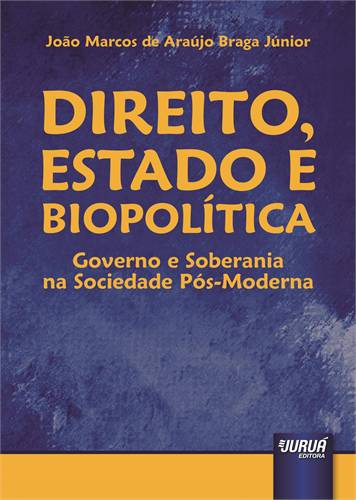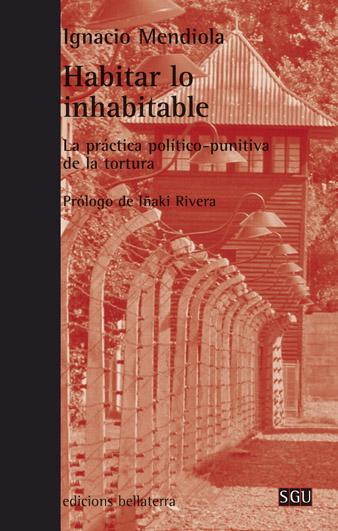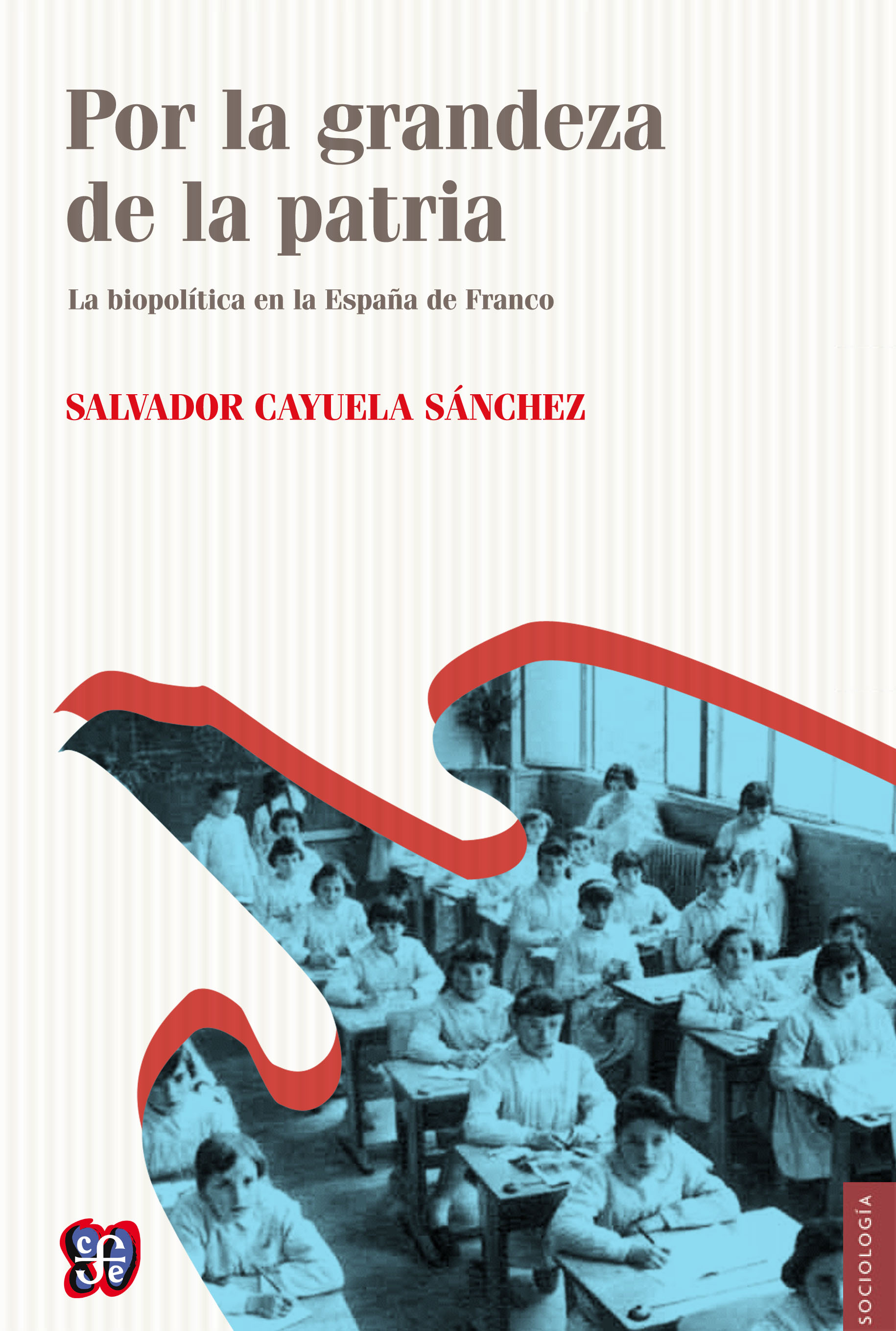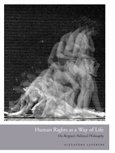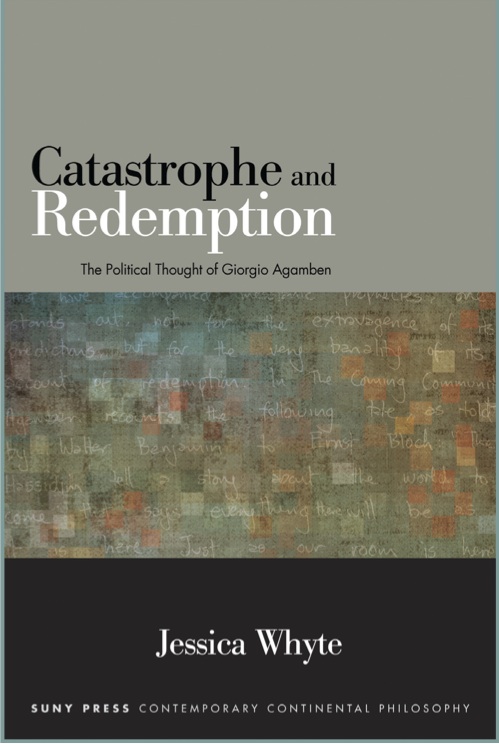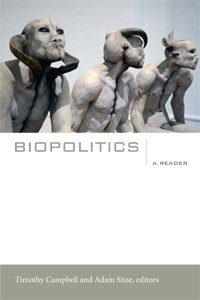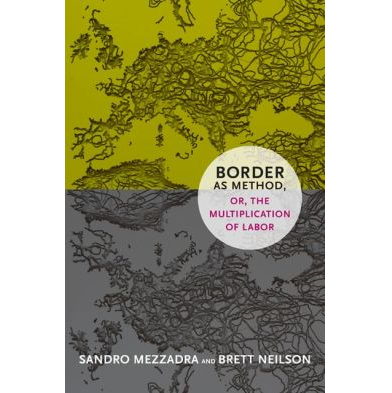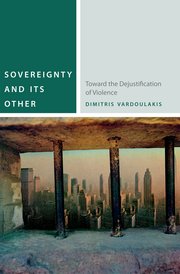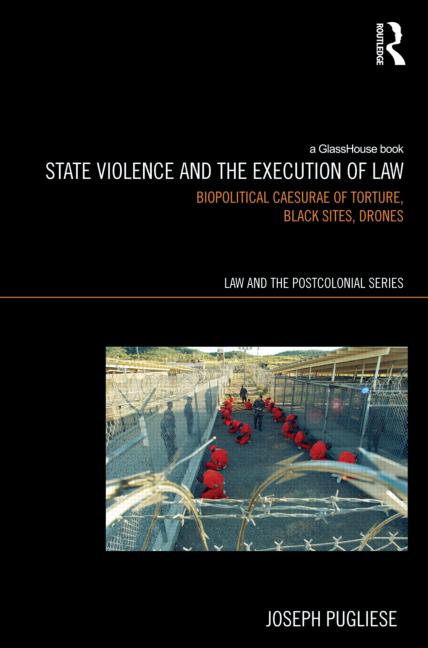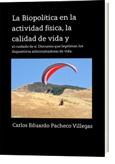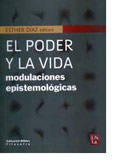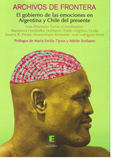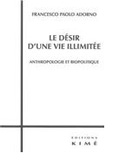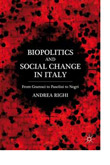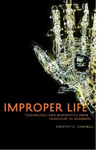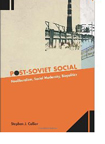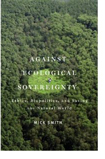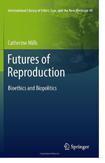This study aims to analyze the problems of life of the governments at the thought of Michel Foucault, between the years 1974 and 1979, especially around the invention, development and mapping of concepts and biopolitics anatomopolitics. For this, the development of our research starts from a careful analysis of the origins of life of the […]
Books
A book (with reviews) for this site.
La semántica biopolítica: Foucault y sus recepciones
In this book are presented the Foucault’s investigation on biopolitics and biopower, through the courses of College of France. Thus, is possible to find the development and transformation of his concepts around biopolitics. Also, the author shows the different teoretical projects wich has receptioned this ideas on biopolitics and biopower sach as Studies in governmentality, a […]
Políticas de la excarnación. Para una genealogía conceptual de la biopolítica.
Políticas de la excarnación. Para una genealogía teológica de la biopolítica is an effort for understand the point of articulation and, at the same time, the separation between sovereignty and government. Following the way opened by the post-foucauldian philosophy -specially Giorgio Agamben, Roberto Esposito and Jean-Luc Nancy-, Rodrigo Karmy Bolton suggest that the encarnation is the […]
Direito, Estado e biopolítica: governo e soberania na sociedade pós-moderna
The reflection on the fields of both political and legal philosophy frequently falls into the challenging understanding of a notion known as a central axis where all analysis cross over ; such notion is sovereignty. Present time events, in their remarkable singularity, reset this subject in all its complexity, opening the possibility to a renewed interest […]
Habitar lo Inhabitable. La práctica político-punitiva de la tortura
This book tries to argue how torture responds to a political-punitive practice that is embedded in the functioning of the state devices. This is not an admission that we are facing a systematic practice but that the punitive exercise state enabled the conditions of the possibility for their exercise. From this consideration, it opens a […]
Por la grandeza de la Patria. Biopolítica en la España de Franco
The Franco regime had its origin in a bloody civil war that ravaged Spain for nearly three years, drawing a deep and dramatic rift between winners and losers. In the difficult context of the Spanish civil war, violence and widespread fear certainly played a fundamental role in the institutionalization of the new State. However, the […]
Human Rights as a Way of Life. On Bergson’s Political Philosophy
The work of Henri Bergson, the foremost French philosopher of the early twentieth century, is not usually explored for its political dimensions. Indeed, Bergson is best known for his writings on time, evolution, and creativity. This book concentrates instead on his political philosophy—and especially on his late masterpiece, The Two Sources of Morality and Religion—from […]
Catastrophe and Redemption: The Political Thought of Giorgio Agamben
Challenging the prevalent account of Agamben as a pessimistic thinker, Catastrophe and Redemption proposes a reading of his political thought in which the redemptive element of his work is not a curious aside but instead is fundamental to his project. Jessica Whyte considers his critical account of contemporary politics—his argument that Western politics has been “biopolitics” […]
Biopolitics. A reader
This anthology collects the texts that defined the concept of biopolitics, which has become so significant throughout the humanities and social sciences today. The far-reaching influence of the biopolitical—the relation of politics to life, or the state to the body—is not surprising given its centrality to matters such as healthcare, abortion, immigration, and the global […]
Border as Method, or, the multiplication of labor
Far from creating a borderless world, contemporary globalization has generated a proliferation of borders. In Border as Method, Sandro Mezzadra and Brett Neilson chart this proliferation, investigating its implications for migratory movements, capitalist transformations, and political life. They explore the atmospheric violence that surrounds borderlands and border struggles across various geographical scales, illustrating their theoretical arguments […]
Sovereignty and Its Other
In this new book, Dimitris Vardoulakis asks how it is possible to think of a politics that is not commensurate with sovereignty. For such a politics, he argues, sovereignty is defined not in terms of the exception but as the different ways in which violence is justified. Vardoulakis shows how it is possible to deconstruct […]
State Violence and the Execution of Law: Biopolitical Caesurae of Torture, Black Sites, Drones
State Violence and the Execution of Law stages a provocative analysis of how the biopolitical divide between human and animal has played a fundamental role in enabling state violence, including torture, secret imprisonment and killing-at-a-distance via drones. Analyzing the complex ways in which the United States government deploys law in order to consolidate and further […]
The Biopolitics in the Physical Activity, Quality Life and the Care Self
The interest of the writing is the existing characteristics identify and to analyze descriptively in the relation activity physics – hiperconsumo as mechanism that sets to work strategies of self-control and government of self. The speech of look after yourself to you itself as technology of me, it has re-formed to the subject thinking it […]
El poder y la vida: Modulaciones epistemológicas
El biopoder se constituye como condición política y se fundamenta como saber científico. Especialistas en Epistemología, Metodología y Biopolítica, presentan temas cruciales de nuestro tiempo analizando los lazos que relacionan el poder con los instrumentos simbólicos que fortalecen la investigación científica. Se sugieren, aquí, distintos caminos para abordar una Metodología entramada con el control sobre […]
Archivos de Frontera. El gobierno de las emociones en Argentina y Chile del presente
Estando estrechamente vinculadas a sus contextos culturales y sociales, las emociones expresan aspectos profundamente internalizados. Es así como, lejos de entenderlas tan sólo como una pura expresión de la intimidad del sujeto, vamos a enfatizar que nuestro interés se centrará en cómo las emociones están culturalmente modeladas. Así se advierte que las emociones no surgen […]
Un peligro que seduce
Este texto, desconocido hasta noviembre de 2011, se suma a ciertas publicaciones—como Dichos y escritos, de 1995, o losSeminarios, desde 1997 hasta hoy— que han renovado del todo la comprensión de los libros de Michel Foucault (1926-1984). En 1968, tan decisivo en el pensamiento europeo, el crítico Claude Bonnefoy grabó sus palabras para hacer un libro muy […]
Insuring War. Sovereignty, Security and Risk
Insurance is a central, if until now ignored, instrument of war in the modern period. Ever since the eighteenth century, interaction between governments and insurers in Western countries has materialised in the form of war risk schemes that have contributed to the waging of war and the preservation of peace. The operation of those schemes […]
Le désir d´une vie illimitée: anthropologe et biopolitique
It is becoming even clearer that technological progress will soon make us capable of modifying human nature at our own will. The goal of making the dream of eternal youth free of sickness and of death is defeating its last obstacles. The possibility of changing human nature has become more acceptable both by the incapacity […]
Aphoristic Compendium. A tribute to Juan Magariños
The philosophical biology is a study field that has a transdiciplinary tendency from which is possible to observe the emergence of new paradigms in biology, according to the worldviews of Fritjof Capra. Those paradigms have an influence on the cultural reality of humanity. From this perspective, the relationships between science & art, biopolitics & society, […]
La vie inséparée: vie et sujet au temps de la biopolitique
Entre 1976 et 1982, Michel Foucault multiplie les hypothèses et les remaniements, ainsi que les considérations rétrospectives concernant sa méthode. C’est au cours de cette période qu’il élabore la notion de biopouvoir, indiquant le moment où, autour du XVIIIe siècle, la vie – celle des individus et celle des populations – entre comme telle dans […]
Biopolitics and Social Change in Italy. From Gramsci to Pasolini to Negri
The study of how life can be controlled, supported, and manipulated has become the most urgent scientific and political task of our society. Each discipline approaches this biopolitical dimension with its tools and agenda; however they ignore how labor over time has materially produced crucial transformations in the manipulation of life. By placing the social […]
Il governo dell’Ethos. La produzione politica dell’agire económico
La ragione economica permea profondamente le pratiche di governo della modernità e ne misura l’efficacia sia attraverso il grado di arricchimento – vero o presunto – che esse producono nella società, sia mediante il livello di adesione all’ethos economico che esse ottengono dagli individui. Questo libro mette a fuoco non soltanto le evoluzioni dell’esercizio del […]
Foucault
Les ouvrages de Foucault ont tous été ressentis comme des provocations: Histoire de la folie a heurté la bonne conscience des psychiatres, Les mots et les choses ont soulevé la grande polémique du structuralisme au milieu des années 1960, Surveiller et punir a scandalisé les milieux professionnels de la justice, et son Histoire de la sexualité enfin (tomes II et III) a […]
How to Read Foucault’s Discipline and Punish
Michel Foucault’s Discipline and Punish is one of the best-selling works of critical theory and a key text on many undergraduate courses. However, it is a long, difficult text which makes Anne Schwan and Stephen Shapiro’s excellent step-by-step reading guide a welcome addition to the How to Read Theory series.Undergraduates across a wide range of […]
Improper Life: Technology and Biopolitics from Heidegger to Agamben (Posthumanities)
Has biopolitics actually become thanatopolitics, a field of study obsessed with death? Is there something about the nature of biopolitical thought today that makes it impossible to deploy affirmatively? If this is true, what can life-minded thinkers put forward as the merits of biopolitical reflection? These questions drive Improper Life, Timothy C. Campbell’s dexterous inquiry-as-intervention.Campbell argues […]
Post-Soviet Social: Neoliberalism, Social Modernity, Biopolitics
The Soviet Union created a unique form of urban modernity, developing institutions of social provisioning for hundreds of millions of people in small and medium-sized industrial cities spread across a vast territory. After the collapse of socialism these institutions were profoundly shaken–casualties, in the eyes of many observers, of market-oriented reforms associated with neoliberalism and […]
Against Ecological Sovereignty: Ethics, Biopolitics, and Saving the Natural World (Posthumanities)
Against Ecological Sovereignty is a passionate defense of radical ecology that speaks directly to current debates concerning the nature, and dangers, of sovereign power. Engaging the work of Bataille, Arendt, Levinas, Nancy, and Agamben, among others, Mick Smith reconnects the political critique of sovereign power with ecological considerations, arguing that ethical and political responsibilities for the […]
The Plurality of Power: An Archaeology of Industrial Capitalism
How do people experience power within capitalist societies? Research presented here explicitly addresses the notion of pluralistic power, which encompasses both productive and oppressive forms of power and acknowledges that nuanced and multifaceted power relations can exist in combination with binary dynamics such as domination and resistance. This volume addresses growing interests in linking past […]
Futures of Reproduction: Bioethics and Biopolitics
Issues in reproductive ethics, such as the capacity of parents to choose children, present challenges to philosophical ideas of freedom, responsibility and harm. This book responds to these challenges by proposing a new framework for thinking about the ethics of reproduction that emphasizes the ways that social norms affect decisions about who is born. The […]
Politics of Security
This volume provides an introduction to the biopolitics of security in the 21st century, written by one of the leading scholars in the field and member of our network.


